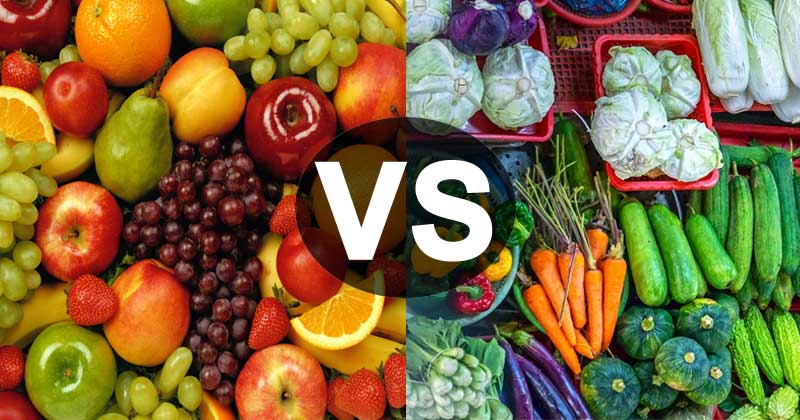Clarifying the question of the difference between fruit or vegetables is not that easy. To date, even food scientists have not found a clear definition of the difference between fruits and vegetables. But we will give it a try.
The word fruit was derived from the old Latin word ‘FRUI’, which meant ‘Enjoy’. This meant everything that was eaten, except bread and meat, including vegetables and legumes. The word vegetables, on the other hand, comes from the Old Latin word ‘VEGETABILIS’, which referred to everything that was grown or to define various useful plants.From the history of the origin of the words also, no clear distinction between fruit and vegetables is derived.
The Clear Difference Between Fruits and Vegetables

Fruit can almost always be eaten raw, whereas vegetables can be eaten cooked or at least steamed. This may have been due to the higher sugar content of fruit and the consistency of fruit. Ripe fruit is very soft and therefore easy to chew. Most vegetables, on the other hand, are hard and therefore difficult to chew. For example, doctors advise against eating raw vegetarian food, since chewing alone may consume more energy than the raw food can provide.
Botanical definition also has gaps
The botanists make the definition of fruit and vegetables easier to understand. Fruit is therefore a superordinate term for fruits and seeds that arise from the flowers of perennials. Vegetables include edible parts of plants, i.e. leaves, stems, roots, etc. of plants that only fruit once in their plant life.

Aubergines, tomatoes, peppers, cucumbers, melons, pumpkins, legumes, okra pods and zucchini cannot be clearly assigned to this definition. For this reason, the additional category of ‘Fruit vegetables’ was introduced for these varieties. Fruit vegetables are vegetables that are suitable for consumption without cooking as well.
Also read- What Happens To Bullets After Gun Salutes?
There is hardly a clear distinction between Fruits and Vegetables, at least for some plants. However, It is much better than earlier times when there was no distinction at all but one should not be cooked and the other must be cooked before consumption.


